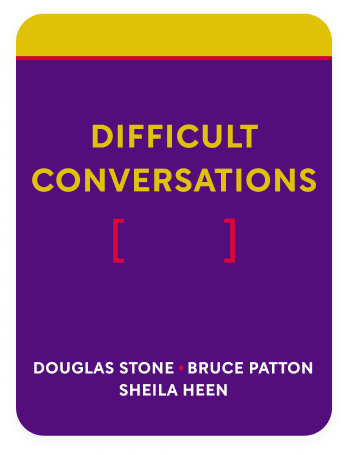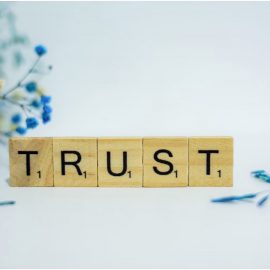

This article is an excerpt from the Shortform book guide to "Difficult Conversations" by Douglas Stone, Bruce Patton, Sheila Heen. Shortform has the world's best summaries and analyses of books you should be reading.
Like this article? Sign up for a free trial here .
What is the best way to deal with conflict? What can you do to arrive at a resolution that meets the needs of both parties?
Some people feel anxiety over conflict resolution, over the task of finding a solution that meets both parties’ needs. But it takes two people to deal with conflict. Unless both people are satisfied, even if it means having to compromise, there is no resolution.
Keep reading for tips on how to deal with conflict and what to do when you can’t find a resolution that satisfies both parties.
How to Deal With Conflict: 5 Tips for Effective Resolution
Some people feel anxiety over conflict resolution because, in their mind, the goal of conflict resolution is to make the other person happy — to meet their needs. But you shouldn’t compromise or agree to their terms just for the sake of getting it over with — this will breed resentment and ill-will.
Sometimes, there is just no resolution that will satisfy your both. No matter how deft the conversation is, there are irreconcilable differences sometimes. In these instances, it’s up to you to decide if you can settle for a less than ideal solution for you, or if you can live with the consequences of sticking firm to what you need.
If you decide to stick firm to what you need, explain what needs of yours aren’t being met by proposed solutions and why you’re walking away from solving the issue. Then, know that you’ll have to accept whatever consequences there are.
5 Tips for Effective Conflict Resolution
1. Communicate what still doesn’t make sense about their perspective. Remember, as you’re participating in conflict resolution, you’re trying to follow the other person’s reasoning. If you’re having trouble following the reasoning, then there’s information missing that would help their side make sense.
2. Let the other party know that you are willing to make a concession, and ask whether they can do the same. If you go into a conflict resolution unwilling to make a concession, you’re not really going into it interested in resolving the issue.
3. Ask what they would do in your position. This might help you discover other assumptions they have about the situation, or understand their reasoning. “How would you feel if you were in my shoes, and what would you do? Why?”
4. Ask for help coming up with creative solutions. “Can we find a creative way to deal with the conflict in a way that satisfies both parties? Are you willing to try to find a solution with me?”
5. Look for external standards of fairness. Sometimes, the best place to deal with conflict is to look outside of the issue you’re having. For example, with the barking dog, maybe there are local ordinances about noise that set a standard that will help solve the dispute, or maybe this issue has come up in the neighborhood before and other people have found alternative solutions.

———End of Preview———
Like what you just read? Read the rest of the world's best book summary and analysis of Douglas Stone, Bruce Patton, Sheila Heen's "Difficult Conversations" at Shortform .
Here's what you'll find in our full Difficult Conversations summary :
- Why healthy relationships need difficult conversations
- The 3 conversations that happen within each difficult conversation
- How difficult conversations go wrong and what to do about it






